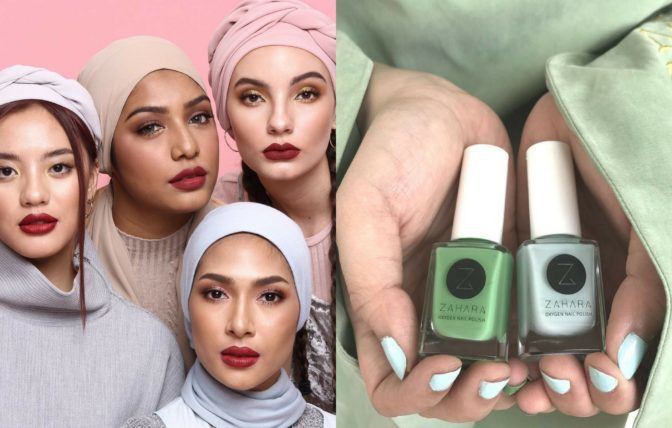
 "
"

 "
"

The halal beauty industry is experiencing rapid growth in Southeast Asia, fueled by three significant trends. With increasing consumer awareness and demand, coupled with stricter regulations, the market is witnessing a surge in halal beauty brands and products. This growth is particularly pronounced in Southeast Asia, where the region’s sizable Muslim population of over 240 million positions it as the primary market for halal beauty.
Understanding Halal Beauty:
Halal beauty refers to beauty products that comply with Islamic law, encompassing composition, production, and materials used. The essential criterion for halal certification is the exclusion of animal-derived substances, alcohol, blood, and harmful ingredients. Ingredients must be alcohol-free, with some allowances of up to 0.5%. Animal-derived components require halal certification, and water-resistant cosmetics like nail polish must allow water to reach the nail bed or skin for ablution. Maintaining hygiene and cleanliness throughout the manufacturing, processing, preparation, transport, and storage stages is also crucial for halal cosmetics.
The Influence of Southeast Asia’s Muslim Population:
The dominance of Muslim consumers in Southeast Asian countries, such as Indonesia and Malaysia, is driving the growth of halal beauty products in the region. With the overall beauty and personal care industry projected to grow by approximately 10% in Indonesia and 15% in Malaysia in 2023, the proportion of halal beauty products in these markets will increase.
Consumer Awareness Spurs Growth in Halal Beauty Products:
The rising consumer awareness and trust in halal-certified products have contributed to the expansion of the halal beauty market. Consumers perceive these products as more ethical and reliable. As a result, businesses are increasingly seeking halal certification to cater to a wider audience. Halal beauty products not only meet ethical considerations but also appeal to individuals with religious beliefs and dietary restrictions. Their availability provides consumers with a broader range of choices.
Brands Respond to Demand by Establishing Halal Factories:
To meet the growing consumer demand for halal beauty and personal care products, brands have started establishing halal-certified manufacturing facilities. Pearlie White, a Singaporean oral care brand, obtained halal certification in June 2022 and subsequently set up a halal-certified oral care manufacturing facility in Singapore. The brand now offers approximately 20 halal-certified oral care products to its customers.
Regulations Encourage Halal Certification:
Tightening regulations on beauty products are motivating brands to obtain halal certification. Certification requires a thorough inspection of product ingredients and manufacturing facilities to ensure they are free from impurities. In Southeast Asia, Indonesia, the market with the largest Muslim population, has passed a “halal product assurance” regulation, making halal certification mandatory for all beauty products by October 2026. This regulation is expected to attract more halal beauty brands to the market in the coming years, compelling both local and international brands to seek certification within the next three years.
Non-Muslim Consumers Drive Halal Beauty’s Growth through Ingredient Transparency and Cruelty-Free Demand:
Halal beauty’s emphasis on ingredient transparency aligns with the growing demand among non-Muslim consumers for detailed information about the products they use. Transparency allows consumers to make well-informed purchase decisions and have confidence in the ingredients. Additionally, the demand for ethically produced or cruelty-free beauty products in Southeast Asia contributes to the growth of halal beauty. Euromonitor International’s Voice of the Consumer: Beauty Survey revealed that 19% of online consumers in Southeast Asia prefer cosmetics and skincare products that are not tested on animals, cruelty-free, and/or 100% vegan. Halal beauty brands meet these demands by prioritizing animal welfare and typically abstaining from animal testing.
Moreover, halal beauty brands often emphasize environmentally-friendly practices, such as using organic or natural ingredients, eco-friendly packaging, and supporting fair trade, aligning with the increasing importance of sustainability in the industry.